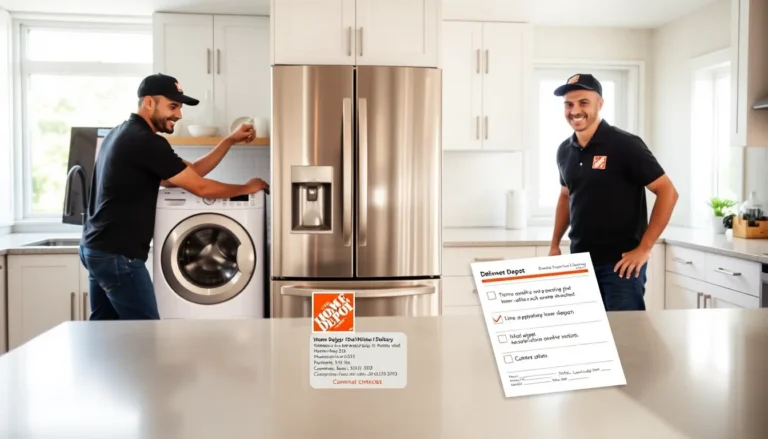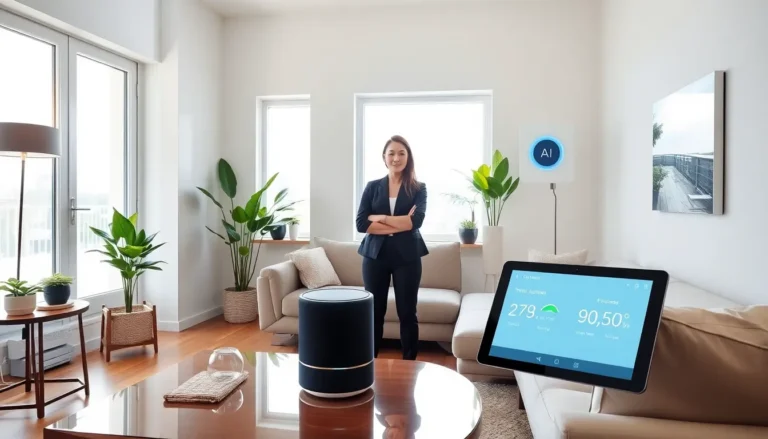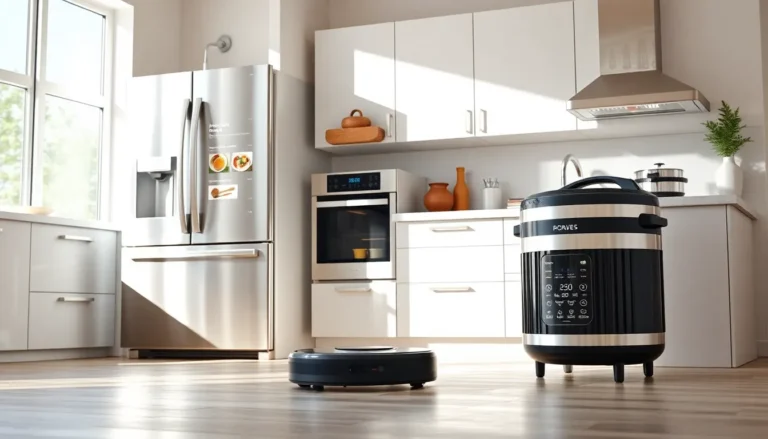In a world where appliances can talk back and lights can dim at the touch of a button, the role of a smart home technician has never been more crucial. Imagine living in a home that anticipates your needs, but what happens when that savvy fridge starts playing hard to get? That’s where the tech-savvy heroes come in, armed with tools and a knack for troubleshooting.
Table of Contents
ToggleOverview of Smart Home Technicians
Smart home technicians play a crucial role in the evolving landscape of residential technology. These professionals ensure homes run efficiently by integrating and maintaining smart devices.
Definition and Role
Smart home technicians specialize in installing, configuring, and maintaining connected devices. They possess expertise in various technologies, including security systems, smart lighting, and climate control. Troubleshooting falls under their responsibilities, as they address connectivity issues and device malfunctions. A technician’s knowledge of different platforms and products allows them to tailor solutions for individual needs. By collaborating with homeowners, they create user-friendly environments that enhance convenience and efficiency.
Importance in Modern Homes
Smart home technicians are essential for creating optimized living spaces. As smart devices proliferate, their expertise ensures seamless integration. Homeowners benefit from energy-efficient solutions, reducing costs while improving comfort. Technicians offer support at any stage, whether setting up new systems or updating existing ones. The increasing reliance on technology makes these professionals indispensable for maintaining safe and functional smart environments. Their skills enhance user experiences, providing peace of mind in an interconnected world.
Skills Required for Smart Home Technicians

Smart home technicians need a blend of skills to effectively support connected devices. Technical knowledge and problem-solving abilities are critical for success.
Technical Knowledge
Technical knowledge forms the foundation of a smart home technician’s skill set. Familiarity with various smart devices, like security cameras, smart thermostats, and lighting systems, ensures effective installation and maintenance. Understanding network configurations aids in resolving connectivity issues, while knowledge of programming languages supports device customization. Expertise in current technologies enables technicians to recommend the best solutions for homeowners. Familiarity with different operating systems is essential, as many smart devices run on diverse platforms. Comprehensive training in electrical systems and safety standards is also beneficial for ensuring secure installations.
Problem-Solving Abilities
Problem-solving abilities empower smart home technicians to tackle unexpected challenges. Identifying malfunctions quickly minimizes downtime for homeowners. Technicians apply logical reasoning to determine the root causes of issues, often working under pressure to restore functionality. Creativity is often necessary for developing innovative solutions, especially in complex installations. Assessing situations from multiple angles helps technicians find effective remedies for unique problems. Strong analytical skills further assist in diagnosing connectivity issues across devices, ensuring seamless integration within the smart home ecosystem. Effective communication skills enhance collaboration with clients, providing clear explanations of solutions and ensuring customer satisfaction.
Tools and Equipment Used
Smart home technicians rely on a diverse array of tools and equipment to execute their tasks efficiently. Mastery of these tools ensures smooth installations and effective troubleshooting.
Common Tools
Screwdrivers, pliers, and wire strippers stand as essential hand tools. Technicians often require multimeters to measure voltage, current, and resistance, facilitating the diagnosis of electrical issues. Cable testers help assess network integrity, ensuring devices operate without disruption. Ladders assist in installing equipment at various heights, especially when placing cameras or smart lighting. Software applications aid in configuring and optimizing device performance. These tools collectively enhance a technician’s ability to deliver quality service and resolve customer concerns promptly.
Emerging Technologies
IoT diagnostic tools represent a significant advancement in the field. These tools permit remote troubleshooting, allowing technicians to diagnose problems without physical presence at a location. Smart device management software enables efficient oversight of multiple devices from a single application. Augmented reality (AR) applications offer real-time guidance for installations, streamlining the process for technicians. By incorporating these innovations, technicians improve service efficiency and responsiveness. Enhanced analytical tools empower technicians to predict device failures, resulting in preventative maintenance solutions that reduce downtime significantly.
Industry Trends
Smart home technology continues to transform residential living. Increased consumer demand for convenience and energy efficiency drives this growth.
Growth of Smart Home Technology
Market research indicates smart home technology will reach a valuation of $174 billion by 2025. Devices like security cameras and smart thermostats remain popular among homeowners. Integration of voice-activated systems enhances user experience while boosting market adoption. Increased internet connectivity facilitates the rise of smart appliances, allowing seamless integration into daily life. As awareness of energy savings spreads, homeowners increasingly prioritize energy-efficient solutions. Technicians play a key role in this expansion, as their expertise ensures proper installation and maintenance of these innovative products.
Future Prospects
The future of smart home technology seems promising. Experts predict a compound annual growth rate of approximately 25% through 2030. Enhanced artificial intelligence capabilities will improve device connectivity and functionality. Proliferation of IoT appliances supports overall system integration, providing homeowners with advanced options. Technicians are set to adapt, acquiring skills to address new challenges and innovations. Integration of smart city concepts will create more sustainable environments, ultimately elevating technician roles. Increased emphasis on cybersecurity will lead to greater demand for specialized training and tools within the sector.
The role of smart home technicians is more critical than ever as technology continues to evolve. Their expertise not only ensures that devices function seamlessly but also enhances the overall smart home experience for homeowners. With the demand for smart technology on the rise, these professionals are equipped to tackle challenges and provide tailored solutions.
As innovations emerge and the landscape of smart homes changes, technicians will need to stay ahead of the curve. Their ability to adapt and acquire new skills will be essential in navigating the complexities of future smart environments. Ultimately, smart home technicians are the backbone of this technological revolution, making homes safer and more efficient while paving the way for a smarter tomorrow.





